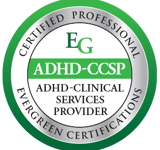Understanding Depression Symptoms & Treatment Options
Explore the symptoms of depression and discover effective treatment options. Depression symptoms and treatments varies depending on several factors. Learn how to treat depression with various methods to improve your mental health and well-being.
5/14/20251 min read


Understanding Depression
Depression is a prevalent mental health condition that affects millions of individuals globally. It is characterized by persistent feelings of sadness, hopelessness, and a lack of interest or pleasure in activities that were once enjoyable. This complex disorder can significantly impact an individual’s daily life, relationships, and overall well-being.
Symptoms of Depression
The symptoms of depression can vary widely among individuals, but some common indicators include:
- Persistent sadness or low mood
- Loss of interest in previously enjoyed activities
- Changes in appetite or weight
- Sleep disturbances, such as insomnia or excessive sleeping
- Fatigue or loss of energy
- Feelings of worthlessness or excessive guilt
- Difficulties in concentrating or making decisions
- Thoughts of death or suicide
These symptoms can be disruptive to normal functioning and may vary in intensity and duration. Understanding these signs is crucial for early identification and treatment.
Types of Depression and Their Treatments
There are several recognized types of depression, each requiring tailored approaches to treatment:
1. Major Depressive Disorder (MDD)
MDD is characterized by severe symptoms that interfere with daily functioning. Treatment typically includes psychotherapy, medication, or a combination of both.
2. Persistent Depressive Disorder (Dysthymia)
This condition involves chronic depression lasting two years or more. Treatment often focuses on long-term therapy and antidepressants.
3. Bipolar Disorder
Bipolar disorder includes episodes of depression along with periods of mania or hypomania. Managing this disorder generally requires mood stabilizers and psychotherapy.
4. Seasonal Affective Disorder (SAD)
This type occurs during specific seasons, often winter, when there is less natural sunlight. Light therapy, along with medication, can be effective in treatment.
5. Postpartum Depression
This affects women after childbirth, marked by severe mood swings. Treatment can include therapy and medication, focusing on the mother's well-being and infant care.
Each type of depression has unique factors that influence its treatment. Various modalities, including cognitive-behavioral therapy (CBT), interpersonal therapy (IPT), and medication such as selective serotonin reuptake inhibitors (SSRIs), have shown effectiveness in alleviating symptoms.
Conclusion
Understanding depression, its symptoms, and the various types can help reduce stigma surrounding this condition and encourage individuals to seek necessary help. Timely intervention, appropriate therapies, and supportive care can lead to significant recovery and improved quality of life for individuals battling depression.
Location
Address
14 Snowhill St., Spotswood, NJ, 08884
Days/Hours
Mon-Fri 9am-5pm
Phone
Find a psychiatrist near
Spotswood, Monroe Township, Jamesburg, Helmetta, East Brunswick, Sayreville, Palin, Old Bridge, Freehold, South River, Milltown, Marlboro Township, Manalapan, Englishtown North Brunswick, South Brunswick and Cranbury


Quality
Comprehensive, holistic, patient-focused care for psychiatric clinic services.
© 2024. All rights reserved.
Insurance
Aetna
Cigna and Evernorth
Horizon Blue Cross and Blue Shield
Oscar Health
Oxford
UnitedHealthcare UHC | UBH
